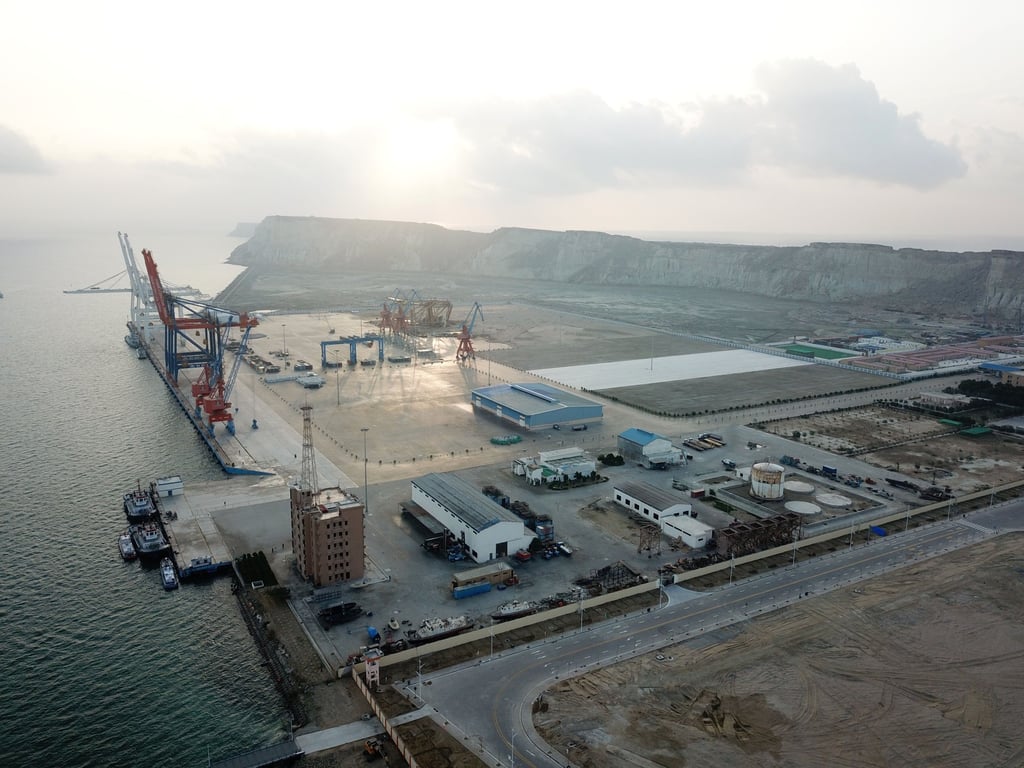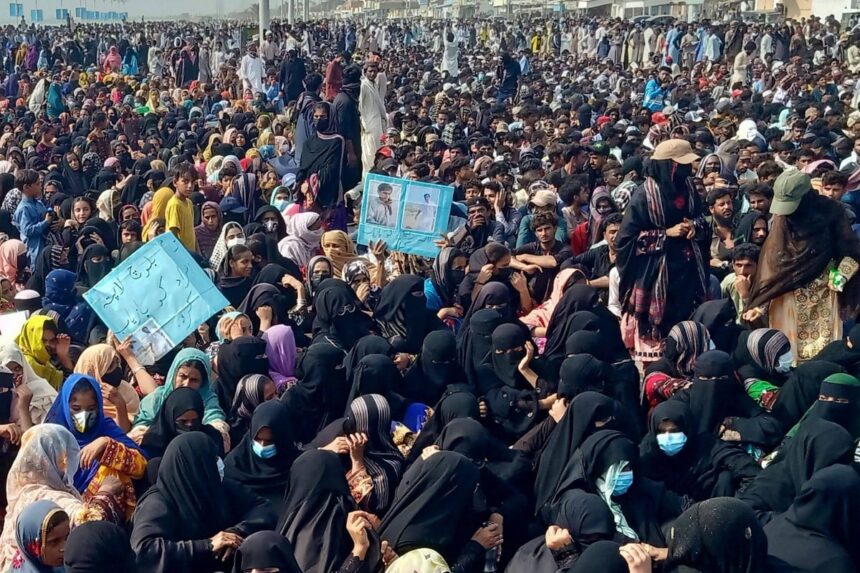Summary by Geopolist | Istanbul Center for Geopolitics:
The article explores recent tensions in Gwadar, Pakistan, which is a key city for the China-Pakistan Economic Corridor (CPEC). The tensions have been caused by protests led by Baloch ethnic nationalists, and they have led to violent clashes with security forces.
The protesters are driven by longstanding grievances related to human rights abuses, resource exploitation, and ethnic tensions. These issues have resulted in clashes between protesters and security forces in Gwadar, which have caused casualties and heightened unrest in the region.
Gwadar is a crucial part of the $60 billion CPEC project, which gives China direct access to the Indian Ocean through the port. The strategic significance of the port makes stability in the region critical for China’s Belt and Road Initiative (BRI).
The violence and unrest in Gwadar have raised concerns about the security of Chinese investments in the region. Chinese officials have emphasized the need for strong security measures to protect their projects and personnel in the area. There are fears that ongoing instability could lead to increased costs and risks for Chinese companies, potentially prompting China to reassess its investment strategies in Pakistan.
The unrest and security issues in Gwadar could also strain the historically close ties between China and Pakistan. There are subtle signs of frustration from Beijing, reflected in recent diplomatic language. Both countries need to address these challenges carefully to maintain their partnership and ensure the success of the BRI project.
Overall, the situation in Pakistan presents significant challenges for China’s BRI ambitions and its relationship with a key partner. The resolution of these issues will be crucial for the future of both the BRI and regional geopolitics.
Read more below.
Will Pakistan unrest dampen China’s belt and road ambitions?
Tensions in Gwadar spiked after protesters led by a Baloch ethnic nationalist movement in the southwestern Balochistan province clashed with security forces deployed to guard the port project early last week.
While Pakistan’s army denounced “unprovoked assaults by a violent mob”, which it said killed one soldier and injured 16 others, protesters claimed dozens of Baloch people were arrested by authorities while mobile and internet services were suspended for days.
The presence of CPEC-related Chinese firms and workers in Gwadar attracted the protesters to the port city, according to Eram Ashraf, an international relations scholar who specialises in China-Pakistan relations.
“Protests in Gwadar are not new, and they will not be going away soon as they are carried out by those in the province who have genuine grievances with the Pakistan government,” she said.
Ethnic tensions and separatist sentiments have been rife in the region, with the Baloch ethnic group long complaining about alleged human rights violations, the exploitation of mineral resources and the growing divide between their community and Pakistan’s biggest ethnic group – Punjabis.
Ashraf said the Chinese projects and citizens in Gwadar were not the real target of the latest round of protests and so were not directly threatened for the moment.
“The security threat to the Chinese is from terrorists who can infiltrate the protests and use them as cover to launch an attack. Some of the Chinese in Gwadar say they feel safe there because of the presence of Pakistan’s military,” she said.
“But the military is not a long-term solution to problems in the area, nor is economic development sufficient. What ultimately is required is a combination of political, economic, and military solutions.”
Reiterating Beijing’s concerns over the security situation in Gwadar, Chinese foreign ministry spokeswoman Mao Ning said on Tuesday that “China and Pakistan attach great importance to the safety and security of the Chinese people, projects and institutions in Pakistan”.
“We believe Pakistan will continue to provide strong security in this regard,” she said.
“As people often say, confidence is more precious than gold. In the case of Pakistan, the primary factor shaking the confidence of Chinese investors is the security situation,” he was quoted by Pakistan’s Dawn newspaper as saying.
Meanwhile, the Chinese embassy in Pakistan issued an alert on its website on Tuesday, confirming the Sust Port, a critical transport hub for both passengers and cargo at the China-Pakistan border, had been closed since August 2 due to another demonstration.
“There is no direct threat to Chinese citizens from the protesters whose grievances are with their own government,” she said.
But the embassy nonetheless warned Chinese nationals to avoid the Sust-Khunjerab Port due to the rising tensions.
Jennifer Murtazashvili, a non-resident scholar in the Asia programme at the Carnegie Endowment for International Peace, said the protests and rising violence in Gwadar and Balochistan posed a serious security challenge for Chinese projects and workers in the region.
“Delays, disruptions and security threats will increase costs and risks for China. Continued instability may force China to re-evaluate the scale and pace of its investments in Pakistan under the Belt and Road Initiative,” she said.
“The recent unrest in Pakistan highlights the risks and pushback China encounters in politically unstable regions where it has substantial economic interests,” she said.
Vanda Felbab-Brown, an expert on international conflicts and a senior fellow at the Washington-based Brookings Institution, said Islamabad’s promises to protect Chinese projects and workers have increasingly come into question over the past year.
“The anti-China sentiments have risen in parts of the country, including in important areas such as Gwadar, and there have been more terrorist attacks against Chinese assets,” she said.
In March, five Chinese were killed in a suicide car bombing in the Khyber Pakhtunkhwa province in one of the deadliest attacks targeting Chinese projects and personnel in years, prompting Beijing to urge Islamabad to “take effective measures” to tackle militant violence.
“What China and Pakistan are finding is what the United States had long experienced in dealing with Pakistan, the challenging security environment there, and the problematic exclusionary rule that often characterises governance in Pakistan and creates a lot of popular dissatisfaction,” said Felbab-Brown.
“The bottom line picture is that despite frustrations by both countries, we are unlikely to see the liquidation of big projects such as Gwadar port, which is of strategic importance for China, but we might well see the further scaling back of new projects and investments in Pakistan,” she added.
Yun Sun, director of the China programme and co-director of the East Asia programme at the Stimson Center in Washington, said security risks in Pakistan had always been an obstacle in China’s belt and road and CPEC projects in the country.
“China has always put pressure on the Pakistani government to protect Chinese projects and personnel in the country. But the problem is that it’s not just a matter of willingness but capacity,” Sun said.
“Given the difficulties and problems in Pakistan’s domestic situation currently, I wonder how much Pakistan can do to eliminate terrorist risks.”
“If things do not improve, it will force China to be more selective and moderate in its [belt and road] projects in Pakistan. Now the CPEC is supposed to enter the new phase of capacity building, it will require more Chinese presence, rather than less.”

Pundits also cautioned that the setbacks in Chinese-funded projects in Pakistan, one of Beijing’s closest allies, would also pose challenges to their “all-weather” relations.
Ashraf noted that Beijing described Islamabad as “a priority in its foreign relations” in the joint statement issued after Pakistani Prime Minister Shehbaz Sharif’s China visit in June – a departure from past descriptions of it as “the highest priority”.
“China’s Ministry of Foreign Affairs have still not clarified why the adjective ‘highest’ was dropped from ‘highest priority’ when describing relations with Pakistan in their recent joint statement,” she said.
Murtazashvili said the subtle changes in diplomatic language “may hint at frustration in Beijing” and test the resilience of the “all-weather” partnership between the two countries.
However, despite its slowing economy and intense international scrutiny of its overseas investments, Beijing vowed at the Communist Party’s third plenum last month to “improve and promote the high-quality joint construction of the ‘belt and road’ mechanism”.
“To safeguard its projects and workers, China will likely press host governments like Pakistan to ramp up security. It may also turn to private Chinese security companies to protect its interests. However, a heavy-handed security approach risks inflaming local tensions,” Murtazashvili said.
Beijing did not deny reports that Chinese officials had urged Islamabad to allow China’s private security companies to protect Chinese projects and workers there, with spokeswoman Mao saying on Tuesday that China “stands ready to work with Pakistan to deepen security cooperation.”
However, Murtazashvili said both sides had strong incentives to maintain close ties, as China values Pakistan’s strategic location and role in countering India’s influence, while Pakistan needs Chinese investment and diplomatic support.
“The US factor adds complexity, as Pakistan tries to balance relations with both powers. Islamabad seeks to avoid overreliance on China by engaging Washington, but its options are constrained by tensions over issues like Afghanistan,” she said.
Going forward, China and Pakistan will need to frankly address differences over the implementation and security of CPEC and other projects.
“Islamabad must assuage Beijing’s concerns without alienating its own citizens. For its part, China should adopt a more flexible and responsive approach that incorporates Pakistani priorities and sensitivities,” Murtazashvili said.
“The turmoil in Pakistan poses significant challenges for China’s [belt and road] ambitions and relations with a key partner. How the two countries navigate these issues will have important implications for regional geopolitics and economic integration.”
Shi Jiangtao
Source: South China Morning Post







